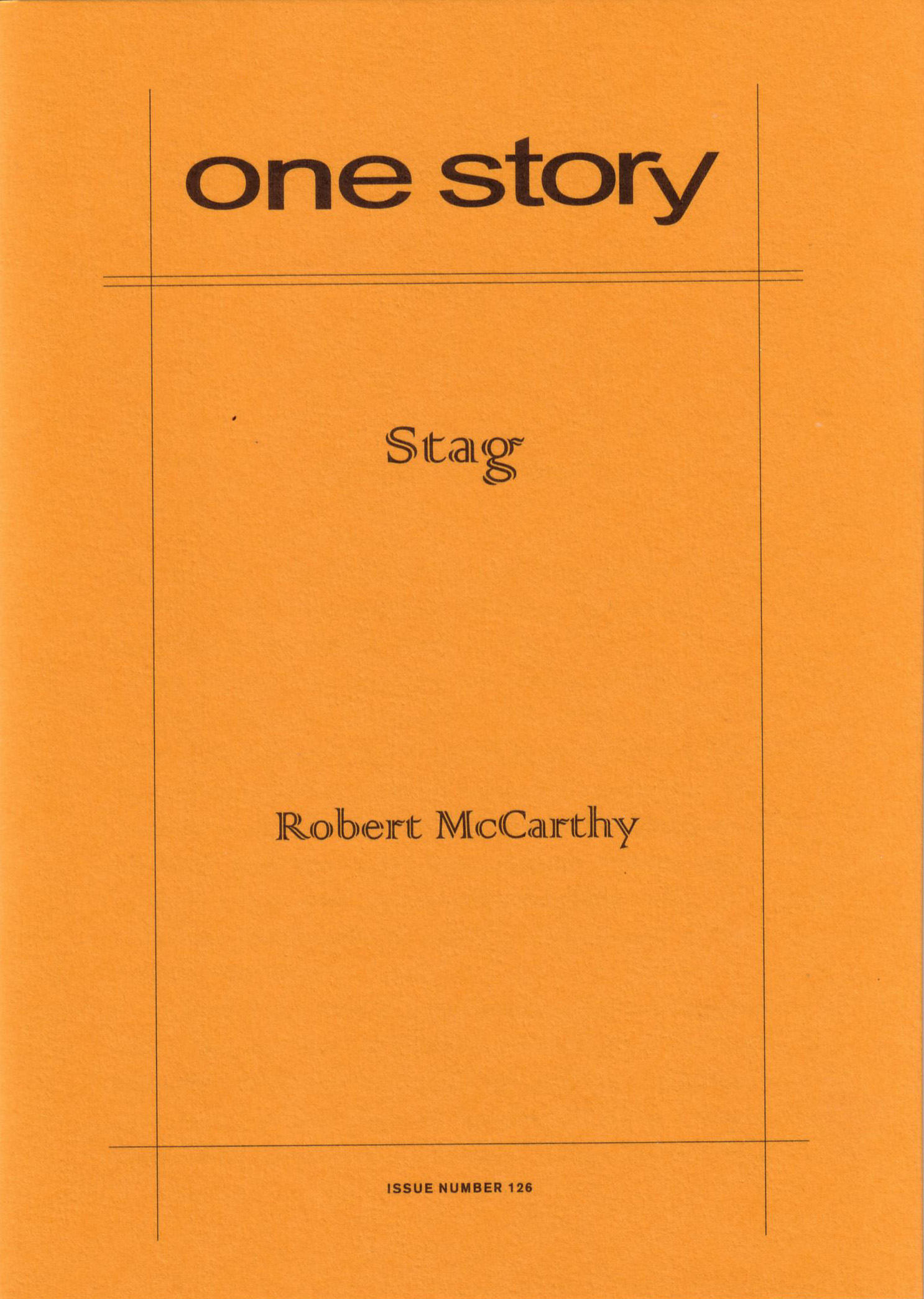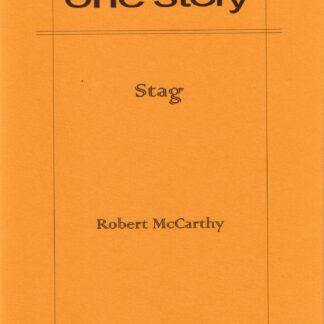
Stag
$2.50
33 in stock
Excerpt
The house Sean found sat in a field of rye on the road to the dump. It wasn’t the dream home his ex-wife always wanted, but it was a place to start over with his daughter.
His friend Doug had come out with weed killer for the thistles that grew tall as Sienna, then helped Sean comb the two-acre lot for anything a three year-old could get hurt on. They’d found plenty. Under a tangle of hackberry, a rusting fuel drum lay with an edge like a curled blade. Patches of switchgrass hid chunks of green glass dating from when the stuff was used to bottle Mountain Dew. And out along the dump road, a variety of bastards had pocketed the landfill fee and left yards of rubble behind the fir trees.
At the east end of the lot a cottonwood slough crept a quarter mile to the river. Sean was filling a bucket with litter blown over from the landfill, sweat dripping from his black beard, when a great hump rose from the grass. It looked like the back of a big dead animal. Or another sun-bleached garbage bag that never made it to the dump. He raised his sunglasses and squinted at it.
Robert McCarthy
Robert McCarthy was born and raised in Clinton, Iowa. He studied fiction at the University of Illinois at Urbana-Champaign, and his stories have appeared in The Paris Review and Zoetrope: All Story. He currently lives and works in Iowa.
Q&A by Jason Watt
- JW: Where did the idea for this story come from?
- RM: The story came together from three ‘real life’ sources. The wildlife encounter is based on an Arkansas news story from several years ago, which I’ve wanted to write about since the day I read it. The story’s protagonist is based on a carpenter who, when I knew him, had just been released from prison and was having trouble finding a place for his daughter and him to live. The girl’s mother had become an addict when he was away, and he himself was just finishing narcotics anonymous; he had to report all of this when he applied for housing. Plus the guy was NFL-sized, which made it harder for landlords to look past his battery conviction. That guy was in a tight spot. This story isn’t strictly his story, but I pictured him when I wrote the character. The little girl in the story was based on a friend of mine’s three-year-old daughter with whom I became close during a year I spent working in California . I wrote the first draft just after I moved away. She’d felt like a daughter to me, and I missed her more than I’d ever missed just about anybody, so I tried to recreate her on the page.
- JW: What was the most challenging aspect of writing this story?
- RM: Probably just balancing those three sources. They made scene-writing easy, but unifying the story took many drafts.
- JW: Stag is the title story of a collection in progress. Like the other pieces you’ve published, this story takes place in the fictive river town of Ballson, Iowa and centers on a blue-collar protagonist just eking out, at best, a middle class existence. Can you address your interest in the milieu of this town and manual labor and how these shape your work?
- RM: The town is where I was born and raised and where a couple years ago I returned to write. I’m probably just superstitious, but I seem to write better here than elsewhere, and that superstition also moves me to write about the place. I think I write about characters eking out a hard living because people’s upbringings and sensibilities so unequally prepare them to get ahead in America . That interests me for too many reasons to go into here. Maybe manual labor more easily lends itself to sensory description than other kinds of work. I don’t really buy that. But part of being working class is that everyday life involves regular physical work. You don’t have somebody to shovel your snow or unplug your drain; you do it yourself. If a tree limb looks like it could crash through your roof in the next storm, you don’t pay somebody a grand to come trim it because that would be a waste of a grand. Instead you climb thirty feet up a pine tree with a tree saw roped to your back. That’s a story waiting to happen, and maybe a drive to the emergency room.
- JW: You’ve said before that your fundamental concern as an author is to write something that matters. At what point did Stag matter? In other words, when did you know you had a story?
- RM: I should clarify that when I say “matters” I mean that if I am going to expect anything I write to matter to anyone else then it had better matter to me first. I try to write for two two and half hours every morning before I go to work. I do it in my concrete basement under a naked bulb next to a cinder block wall. Sometimes water comes through the wall. Spiders live down there. If the alternative to this is, say, being in a cozy bed next to somebody you love, then writing the story had better matter to you. Otherwise, you’re nuts. I felt I had story going here when the words on the page began to convince me of the protagonist’s love for his daughter.
- JW: On the flipside, can you explain why a story wouldn’t “matter” to you?
- RM: I’ve written many stories that no longer matter to me when I look at them years later. Part of that seems inevitable because “mattering” is a fleeting condition. Many things cease to matter the way they used to. But a story should be able to resist that decay. We may tell a person that we will always love them, but none of us will love anyone as long as Penelope has loved Odysseus. When my writing stops mattering to me it’s because I have given it too little heart. I have tried too hard to be funny or suspenseful or clever, but the heart of the story is too weak to animate it.
- JW: The events of Stag take place during a single day, mostly over the course of a few hours. Do you find that the form of the short story lends itself to brief durations?
- RM: I think that just depends on the story and the writer. The shorter duration does seem to be easier for me. Maybe because I like to narrate close-third-person from a single point of view, and a lot of my favorite stories in that mode by Hemingway, O’Connor, and Joyce also have a short span. What’s challenging is to determine which will be the most telling few hours in the central character’s life.
- JW: How long did it take you to complete this story?
- RM: I think I wrote the first draft in a month or so, which is fast for me. I sent it off, and it was rejected, so I came back and worked on it again a year later. By then I could see it better and I made some improvements. I continued to revise with Hannah and Jason, who I sincerely thank for their excellent advice and their patience.
- JW: What are you working on now?
- RM: Another short story. It’s got a ghost, and it’s set in an old spiritualist camp in the same town as the rest of the stories I’ve written.
- JW: What is the best bit of advice about writing you have ever received?
- RM: I was in a seminar where somebody asked Richard Powers what was the single most important thing a writer had to be able to do. His answer was basically that you have to be able to read your work with someone else’s eyes. That’s a very basic idea, and I’m sure he put it more eloquently, but I don’t remember his words, only how terrified they made me feel. Because that does not come easily to me. I suspect that might come naturally to prolific writers, like having a second sight. But I have to go away and let time pass, as if small changes have to happen to me before I can see differently.
